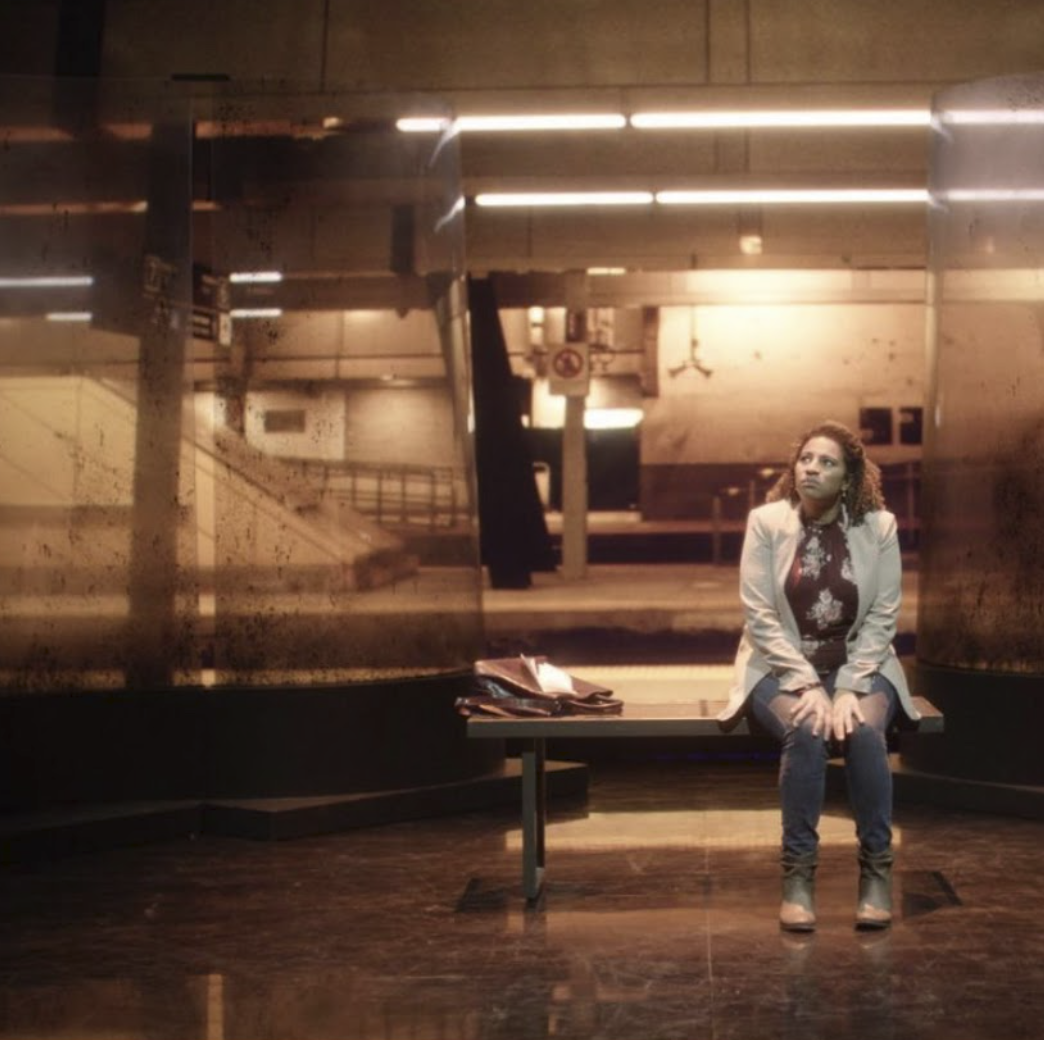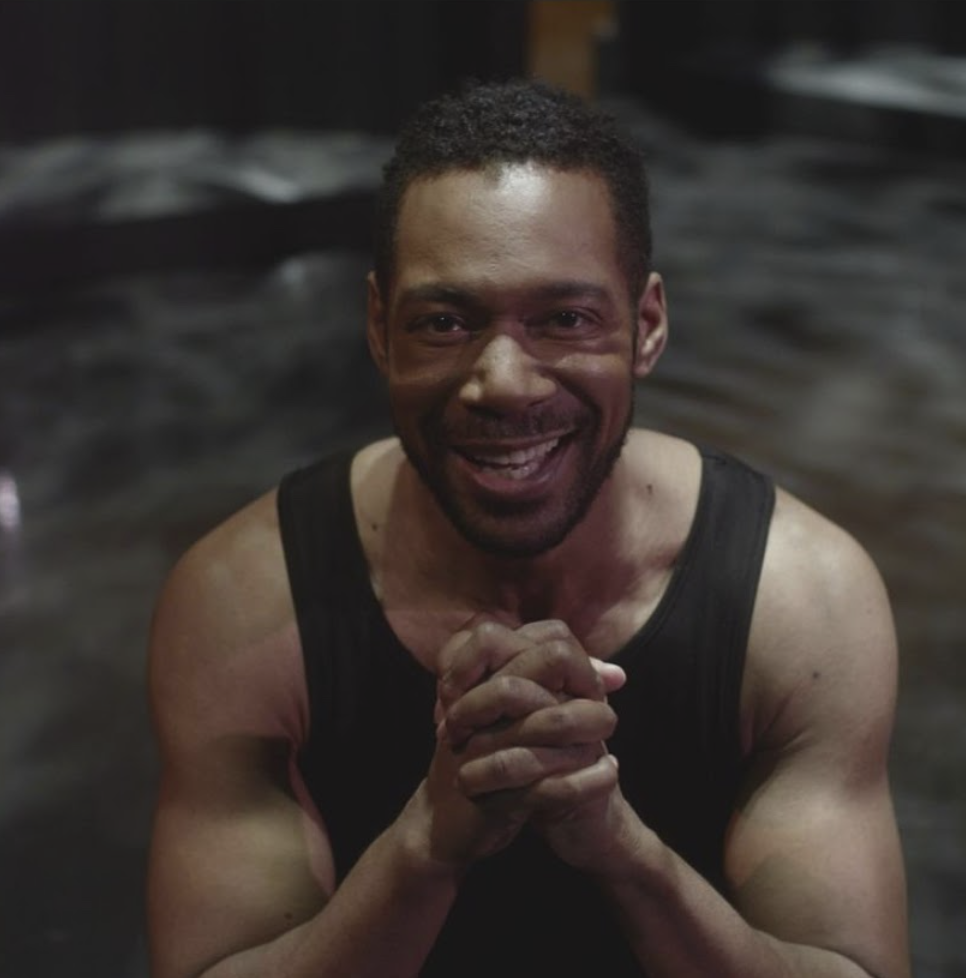Abigail Whitney, Artist Feature - 21 Black Futures
Abigail, a UofT alumni, shares her gratifying experience working on 4/21 Black Futures monodramas, as her creative voice adds to the nuanced and diverse stories of Blackness being created, produced, and celebrated by 63+ Black artists across Canada.
BY: MALIKA DAYA
Photo by Angelique Negroni-Kearse via BBC
Mumbi Tindyebwa Otu, the artistic director of Obsidian Theatre—a theatre designed to support Black artists and nurture their creative voices—offers us a radical offering during unprecedented times. She writes, “With no end to the pandemic in sight, I went further into self-isolation, mourning privately the continuous murder of Black people at the hands of the police. With no access to the theatre and no access to community, I was hurting and in need of connection. I wondered how other Black artists were doing.”
With the world’s gaze turned sharply towards the Black community, Mumbi began to ask herself questions. How could she respond and support Black artists in her position as artistic director? Was there a way for Black creatives across Canada to create something together?
“I was interested in new stories about imagined Black futures to counter the messaging that was suddenly everywhere about us, but not from us. I was interested in new words, in new language, in what Black writers and thinkers across the country had to say about our future.”
And here, in these questions, Obsidian Theatre’s anthology, 21 Black Futures was born.
21 Black Futures is a series of 21 short monodramas by 63+ Black creatives—21 Black playwrights, 21 Black directors, and 21 Black actors. They all ask meaningful questions about the future of Blackness, centering and celebrating Blackness through nuanced and diverse lenses. The anthology is online, free, and accessible at any time on CBC gem.
Photo Courtesy of Abigail Whitney
Abigail Whitney, a recent University of Toronto graduate with a Bachelor of Arts in Theatre and Performance, English, and Equity Studies, was an assistant film director for four of the monodramas: Sensitivity, Witness Shift, Madness with Rocks, and Notice.
Abigail is an award-winning stage director, an actor, fashion model, artist-educator, youth mentor, Artistic Director Intern at Volcano Theatre, and the founding Artistic Director of Theatre for The Youth, that aims to support Black creatives and bridge the gap between emerging and professionally established Black artists within the Canadian film, visual & theatre industry.
I had the privilege and opportunity to have a conversation with her about her experience working on 21 Black Futures.
What is at the heart of 21 Black Futures for you? What are some key learnings you are taking with you as a storyteller and human-being from your experience?
At the heart of 21 Black Futures are full circle moments for me that are so meaningful.
The first project I was brought on to assistant direct was Sensitivity by Lawrence Hill. I was at a loss for words. Reading Hill’s The Book of Negroes as a teenager was life-changing for me. I immediately felt a sense of the magnitude of 21 Black Futures. This year I had the opportunity to collaborate with the living legend who at the end of Season One’s premiere said to me: “You clearly have an amazing career ahead of you. I wish you all the best, and would love to work with you again.”
I performed in Ngozi Paul’s documentary The First Time when I was 13 years old and I found myself assistant directing her in Notice by Luke Reece, 10 years later.
In November 2019, I assistant directed co-director Mumbi Tindyebwa Otu, who was yet to become Artistic Director of Obsidian Theatre Company, in the Dora nominated Here are the Fragments at The Theatre Centre. That summer, I assisted the Here are the Fragments’ workshop with Dion Johnstone, the Warrior in Madness with Rocks.
In March 2020, I watched Uche Ama perform in The Negroes are Congregating and I was assistant director of her in Witness Shift.
I discovered that whether I just read their book or watched a performance of theirs, that I was always in communion with each person then and the line of connection reappeared today. We’re all in community together and I’m now part of an ongoing community. This circle in particular has meant a lot to me as it represents our community’s desire to continue to grow and find new ways to be together.
Photo of Sensitivity via Obsidian Theatre
Witness Shift reimagines an aspirational, safer, and braver future, where alternative options to policing are explored to protect communities and meet the needs of the most vulnerable.
Sensitivity poignantly discusses the challenges of working within a racist system, specifically with individuals who do not see the value in sensitivity and anti-racism work. The monodrama is relevant to many of the conversations BIPOC community members are entangled in with white privilege. The piece serves as, Mike Payette writes, an important reminder "to remember who we are and what we believe in when confronted with those who challenge us."
What do you think needs to be uprooted in society NOW and what new roots need to be planted and nurtured?
21 Black Futures is a metaphor of a forest filled with imagery of uprooting and planting seeds. From the name Seeding the Future itself, Black theatre students across Canada responded to 21 Black Futures.
I felt nurtured by every collaborator a part of this journey, and us collectively making an impact that’s spreading roots for many generations to come.
We’re uprooting the stereotype that there’s one type of Blackness in Canada, and we’re nurturing an affirmation of our different identities and validating them.
We’re uprooting the times when there was, and I quote Omari Newton, the playwright of 40 Parsecs and Some Fuel, “A single Black person being the voice in the room to carry the message on behalf of our community.” We’re nurturing more spaces with Black people and more of our voices in the room.
We’re nurturing, created, produced, directed, and written by Black people for Black audiences. “We’re creating the dictionary of Blackness” said Lisa Codrington, the playwright of The Prescription, “and it’s thick too.”
Photo of Madness with Rocks via Obsidian Theatre
In Madness with Rocks, we encounter a Warrior—100 years into the future—who is grappling with the extinction of his culture. For many BIPOC individuals, this sentiment is alive and a real anxiety. In your opinion, what can the audience learn from Madness with Rocks, and how can BIPOC youth and young adults strive to keep their roots alive, in the present and future?
I grew up isolated from both of my parents’ cultures and their extended family. For that reason, I connected with the symbol of the boulder in the piece—full of remnants of passed down cultures and traditions and surrounded by an extinction of family history and genealogy. But I felt simultaneously like the Warrior—the lost child of diaspora, left searching with a responsibility and privilege to tell my story, my family’s stories and my ancestors’ stories through multidisciplinary means of storytelling.
Madness with Rocks teaches us that our identity already holds our history and that, to heal from the loss of culture, we must keep our memories alive. I keep my roots alive through the plays I direct, expressing my innermost self through the stories and characters from plays when my words fail or are not being received. I’m bringing my values from home, my relationships, my communities into a piece I direct. I take ownership of who I am and my story and share it!
What do you hope the audience takes with them?
I have never been exposed to this much diverse content on a mainstream platform that relates to me so much. 21 Black Futures sparks critical and complex conversations about the nuances of my Blackness. I get quite emotional seeing myself this deeply represented in a raw and unapologetically Black manner and swagger.
21 Black Futures is an epic rallying cry, a movement that unlocked and unleashed sleeping giants.
My hope is for Black people discovering themselves to give themselves time and permission to own who they are and be who they are. Everyone experiences time differently, 21 Black Futures reminds us to nurture that difference and reminds us that our story matters where we are at right now.
My hope is that audiences are thought-provoked and continue to ruminate and talk about the conversations that each piece delves into, and that they dive back into watching them all over again, because 21 Black Futures is timely.
Photo of Witness Shift via Obsidian Theatre
The Artistic Director of Obsidian Theatre, Mumbi Tindyebwa Otu has shared that the guiding question for this endeavour is "What is the future of Blackness?" What do you, as a BIPOC artist, want the future of Blackness to look like?
In asking “What is the future of Blackness?'' Mumbi is saying that even against all odds, no matter how many cards are stacked against us, Blackness does and will exist in the future! By showing me what’s possible from the vision she’s put forward and manifested, she has let me know and see the power of what I can create as a multi-hyphenated artist. She’s actualized and realized the stories of 63 Black artists’ imaginations for future generations to come.
In me, Mumbi evoked the realization that the future is today.
That makes my dreams feel more possible, knowing that I can do anything I set my mind to. So, yeah my future is looking bright.
Is there anything else you'd like to share?
I’m so thankful to God!
Thank you Mumbi Tindyebwa Otu, Myekah Payne, Fatuma Adar, and Michael Sinclair at Obsidian Theatre Company for entrusting me with the position to assistant direct 4 of 21 Black Futures.
Thank you to Lucius Dechausay.
Thank you to my Sensitivity team: Lawrence Hill, Mike Payette, and Sabryn Rock.
Thank you to my Witness Shift team: Sarah Waisvisz, Uche Ama, and Donna-Michelle St. Bernard.
Thank you to my Madness with Rocks team: Jamie Robinson, Dion Johnstone, and Peace Akintade.
Thank you to my Notice team: Ngozi Paul, Lisa Berry, and Luke Reece.
Working with you all has been such a gift. I am forever grateful to share this space with you all.
Thank you to Malina Patel, Kat Chin, Carlos I. Varela Serra, Keenan Lynch, Muzafar Malik, Rachel Forbes, Shawn Henry, and so many more crew members for welcoming me (4 times) on set!!
A special thank you to Abigail Whitney, for so generously offering her time for this interview. Check out the 21 Black Futures anthology on CBC Gem.
Read more about the personalities behind 21 Black Futures here





